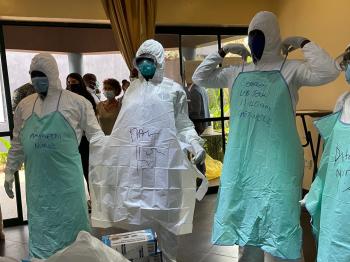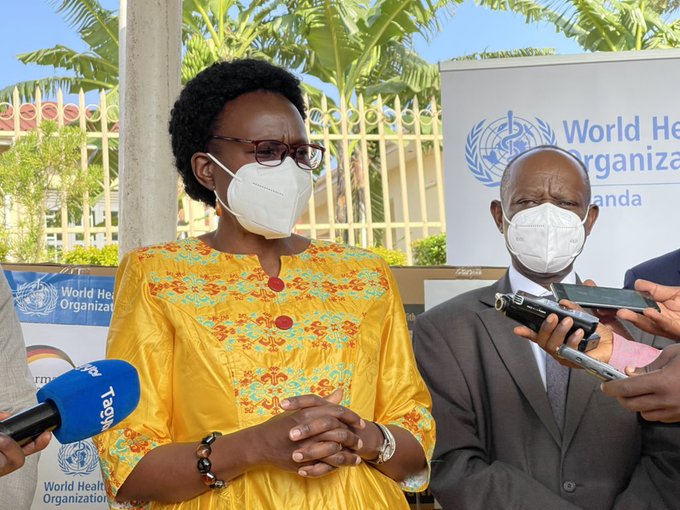UGANDA – Over 70 emergency responders, including managers, national trainers, and rapid response teams, were trained by the Ministry of Health, the World Health Organization (WHO), and the U.S. Centers for Disease Control and Prevention (CDC) at the Nile Village Hotel in Jinja on the rapid deployment and operational response to public health emergencies.
The two-week programme, which began on July 12, 2022, is a component of the WHO effort known as the Rapid Response Teams Training Implementation Package (RRT TIP) and was funded by the French Ministry of Health through WHO.
The main objective of this RRT TIP pilot was to strengthen the capacity of Rapid Response Teams (RRTs) to successfully respond to all public health epidemics at the national and sub-national levels by giving the nation the tools, direction, and support it needs to put a sustainable strategy in place.
Uganda is the first WHO member state to deploy the Rapid Response Team training package, which consists of learning resources created by WHO from a global standard viewpoint to be adopted by the Member States in a local context to fulfil their particular needs, according to WHO.
Uganda’s Minister of Health, Dr Jane Ruth Aceng Ocero, emphasised the importance of forming trained Rapid Reaction Teams (RRTs) that are easily accessible for deployment and response in emergencies in order to handle the nation’s public health and emergency issues.
“We value WHO and CDC’s timely and essential help in enhancing the capabilities of our employees,” Dr Aceng emphasized.
The main objective of this RRT TIP trial was to strengthen the ability of Rapid Response Teams (RRTs) to successfully respond to all public health epidemics at the national and sub-national levels by giving the nation the tools, direction, and support it needs to put a sustainable strategy in place.
“COVID-19 has underlined the need for skills transfer at the national and sub-national levels,” Dr Yonas Tegegn Woldemariam, the WHO Representative in Uganda, said.
“The qualified National Trainers (ToTs) will be in a position to lead training sessions and apply their expertise to help Rapid Response Teams at the national and subnational levels develop their capacity to respond to public health emergencies quickly and effectively,” he said.

“On August 17 and 18, Uganda will adopt these learning materials to suit subnational Rapid Response Teams for future in-country training.” – Dr Moses Ebong, Principal Medical Officer, Department of Integrated Epidemiology, Surveillance and Public Health Emergencies Division, MoH.
Uganda has several infectious disease outbreaks across the nation each year, according to Dr Amy Boore, Program Director, Division of Global Health Project, U.S. Centers for Disease Control and Prevention Uganda, U.S. Mission Uganda.
“Building interdisciplinary team capability at all levels is essential for a quick, effective, and efficient response to prevent catastrophic effects,” he said
The RRT TIP audience is divided into two groups, with the major target audience being made up of bodies that are instrumental in promoting continuing training and the growth of local capacity in areas connected to health emergency preparation and readiness.
These include the Emergency Operations Center, Incident Management System, National Public Health Institutes, regional academic institutions, non-governmental organisations, partners and pertinent Ministry of Health Departments.

